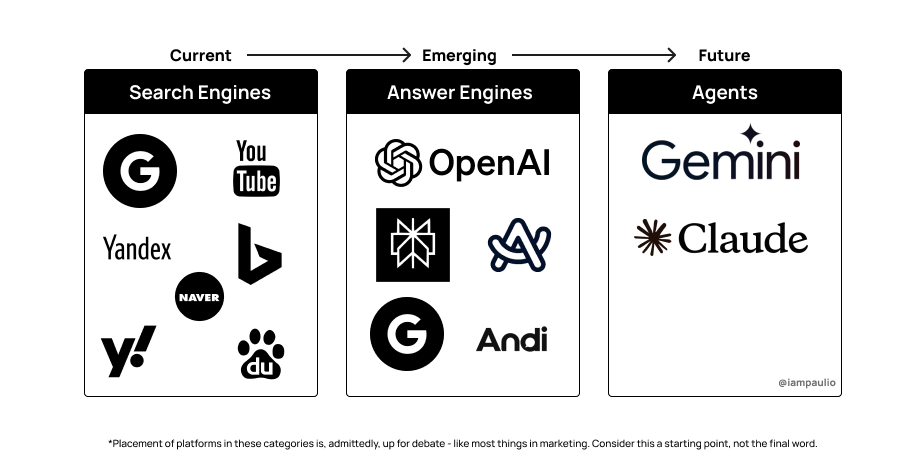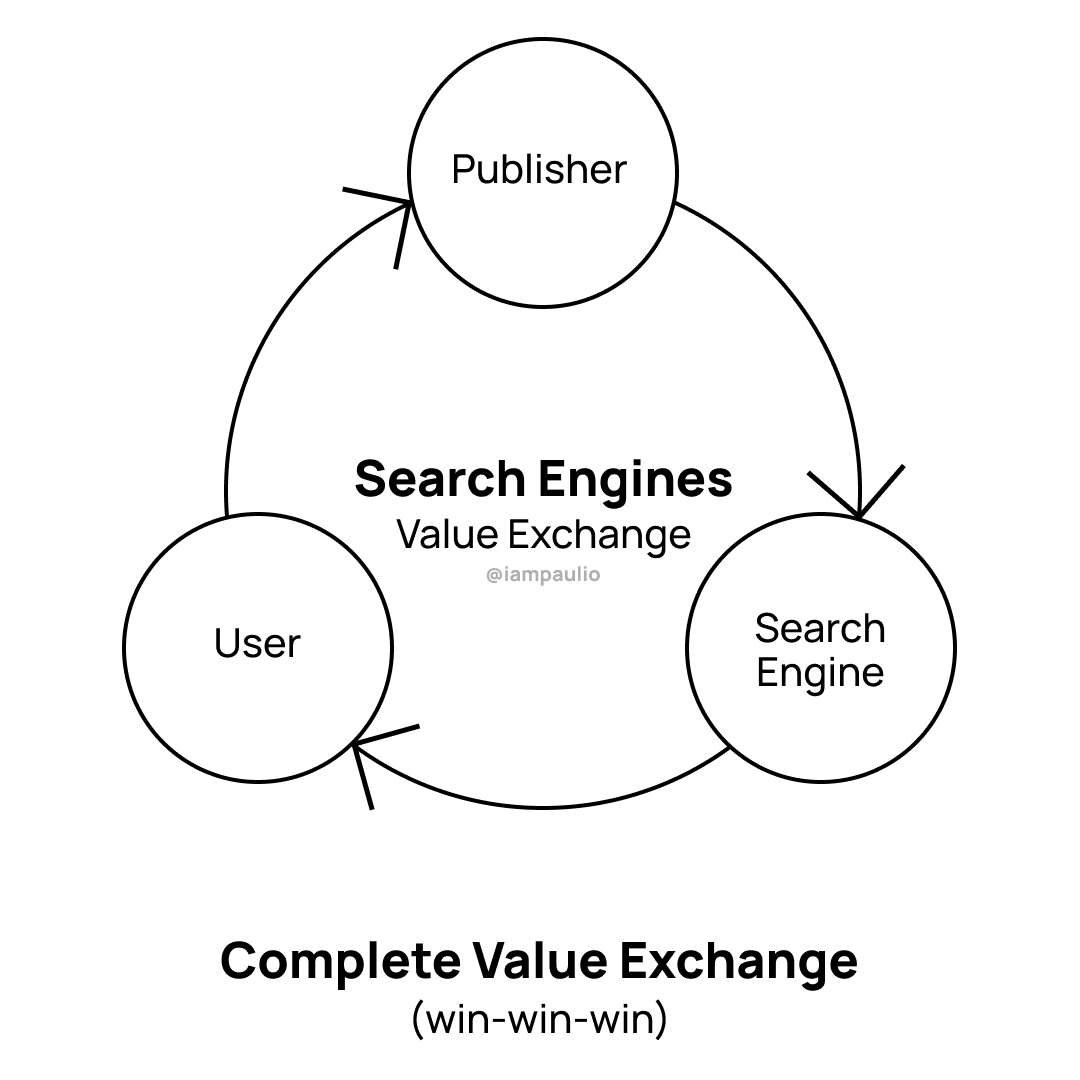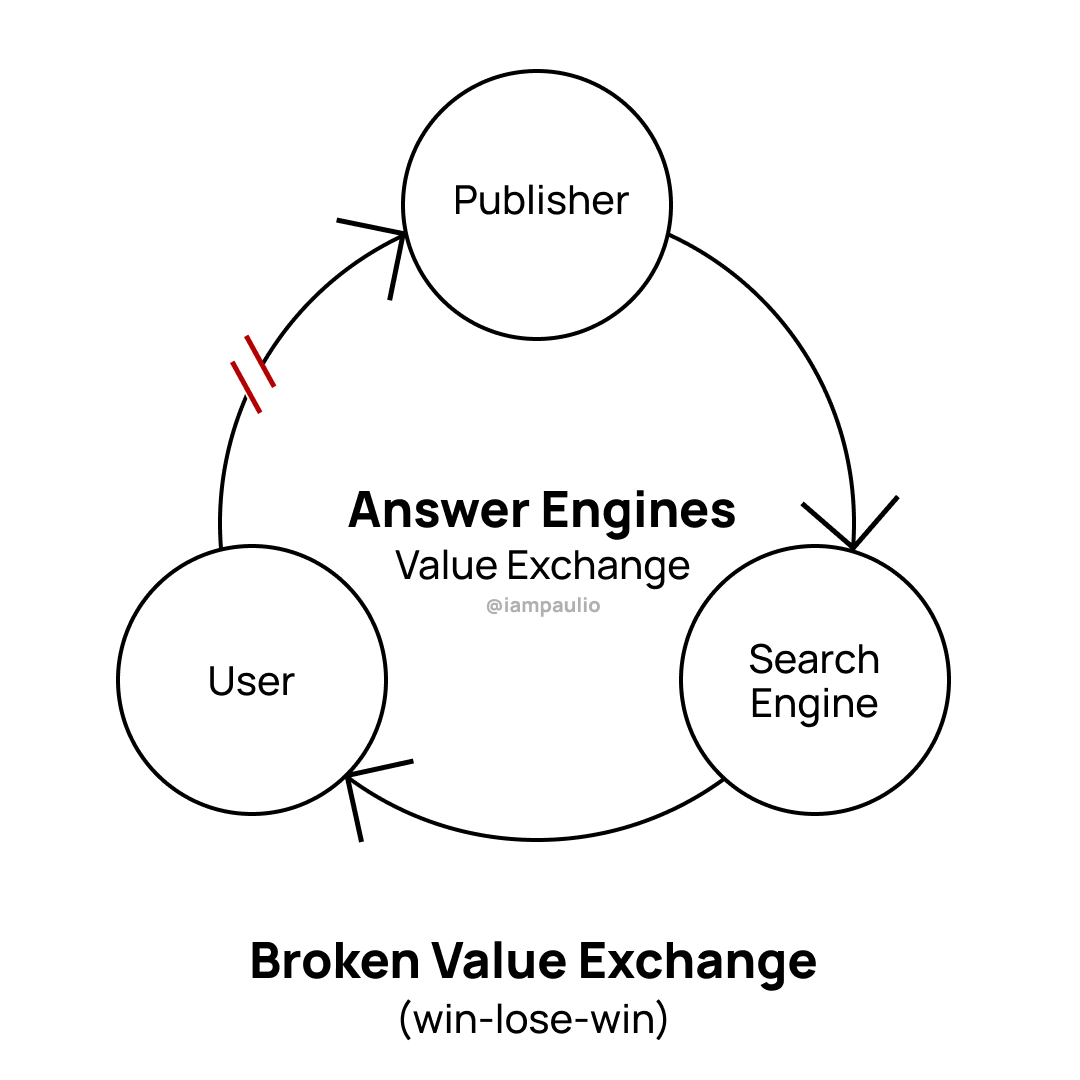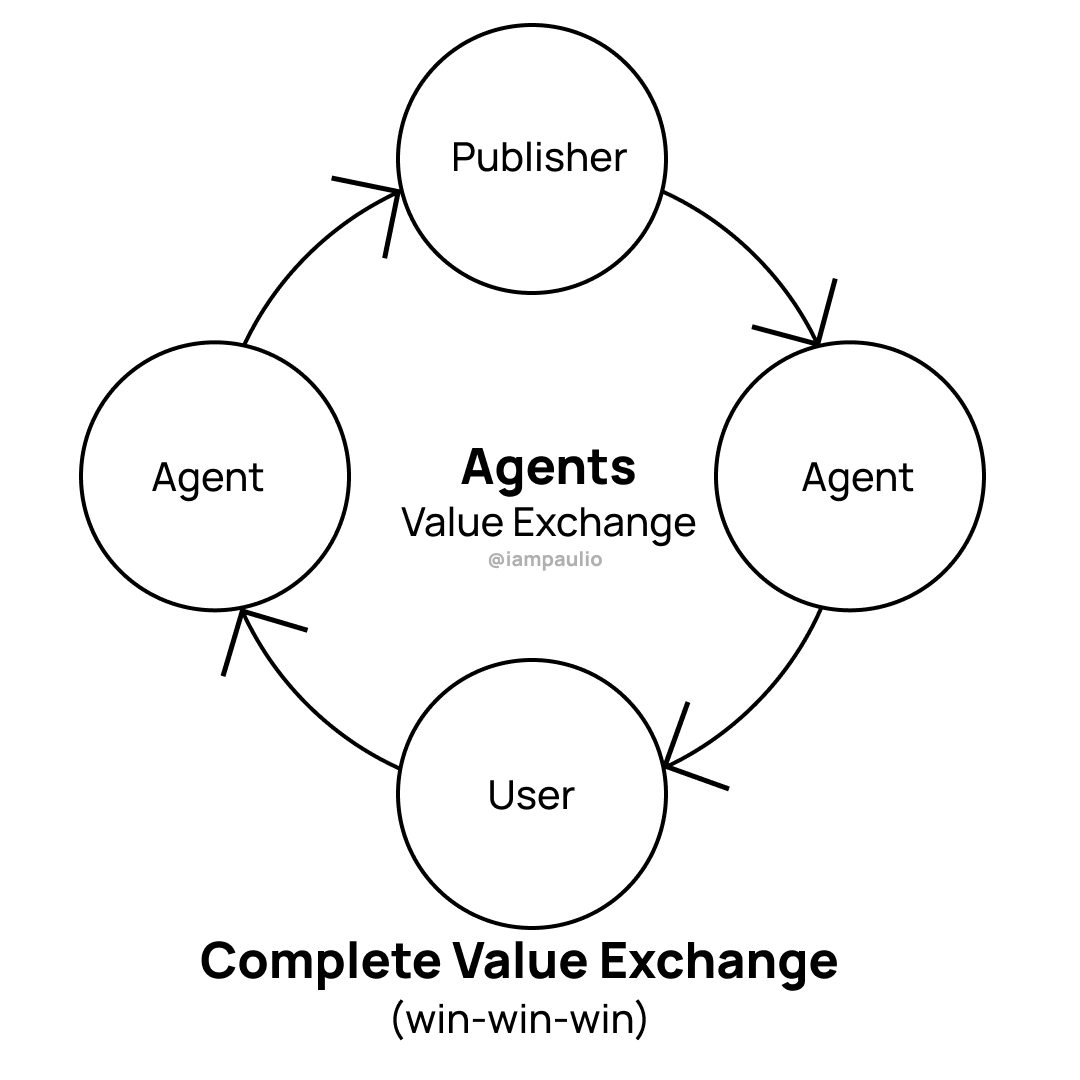No Value for Marketers in Answer Engines, But AI Agents Look Promising
AI is disrupting the future of search, breaking the value exchange that balanced publishers, users, and platforms. Answer engines strip traffic from publishers, while AI agents may restore balance. Learn how marketers must adapt to thrive in this evolving digital landscape.

Things are getting weird in the world of web search, and an article I recently read on generative AI confirmed it. The shift from traditional search engines to answer engines, and now AI agents, is flipping the marketing value exchange on its head. Users are getting faster answers, platforms profiting, while content publishers are losing eyeballs and revenue. If marketers don’t adapt, they’ll find themselves obsolete.
Earlier this week, one of In Marketing We Trust’s search specialists shared an article from MIT Technology Review by Mat Honan titled “AI Means the End of Internet Search as We’ve Known It.” It’s a sharp read and hits on themes I’ve been thinking about since OpenAI launched. Generative AI is disrupting the balance of the content ecosystem—the result? A system that benefits platforms and users, leaving publishers and marketers in the dust.
Answer engines offer users speed and depth but destroy the established value exchange for publishers. However, the rise of AI agents presents an opportunity to restore that balance. The stakes are clear: adapt or risk irrelevance.
The Evolution of Search: From Engines to Agents
The value exchange in traditional search worked because it was simple. Publishers created content, search engines drove traffic, and users got the answers they needed. Everyone played their part, and everyone benefitted.
Then answer engines arrived and bulldozed the ecosystem. These platforms deliver incredible value to users—faster answers, more comprehensive responses—but they strip publishers of traffic and visibility. The reward for creating quality content? Nothing. Platforms like ChatGPT repurpose publishers’ hard work, serve it up with zero-click answers, and pocket the profits.
Mat Honan summed it up perfectly:
“The AI was hoovering up their premium content, repackaging it, and promoting it to its audience in a way that didn’t really leave any reason to click through to the original.”

To understand just how disruptive this is, you need to look at the three distinct models of search:
1. Search Engines (Google, Bing, etc.)
Traditional search engines return ranked lists of web pages based on keyword queries. Users click through to find the information themselves. This model worked because publishers got traffic in return for their content, and search engines monetised the process with ads. It wasn’t perfect, but it was fair.
2. Answer Engines (OpenAI, Perplexity, Claude, and the rest)
Answer engines rewrite the rules. They use publishers’ content to generate synthesised, conversational answers, bypassing the need for users to visit external sites. It is convenient for users but devastating for publishers. The value exchange is gone—no traffic, credit, or reason to keep creating.
3. Agents (Emerging Players, with Google Poised to Lead)
Agents are the next phase. These advanced systems combine planning, reasoning, and tool-using capabilities to execute complex tasks autonomously. They go beyond answering questions to booking travel, scheduling appointments, or making purchases. This model shows promise for publishers, as it introduces clear commercial outcomes. But don’t expect it to be a free ride—pay-to-play models will almost certainly dominate.
One thing to note: Both answer engines and agents operate in a multimodal world. They consume and produce data in multiple formats, making them even more powerful and disruptive.
Here’s How the Value Exchange Works for Each:
To understand the problem, you need to examine the value exchange of each model.

Search Engine Value Exchange: Complete ✅
- Publisher: Creates content → Gains traffic and generates revenue.
- User: Searches → Accesses high-quality information.
- Search Engine: Indexes content → Generates ad revenue.

Answer Engine Value Exchange: Broken ⛔
- Publisher: Creates content → Receives no traffic.
- User: Searches → Gets answers faster (zero-click).
- Answer Engine: Uses publisher content to generate responses → Profits without sharing the value.

Agent Value Exchange: Complete ✅
- Publisher: Creates content → Gains bookings or transactions directly.
- User: Provides parameters and explores options → Completes purchases or bookings seamlessly.
- Agent: Executes tasks → Monetises through pay-to-play models (a sophisticated extension of PPC).
Answer engines are the weak link here. Publishers lose the incentive to create content without a fair value exchange, and the ecosystem risks collapse.
Fixing the System
There’s no easy fix, but a few potential solutions could restore balance:
- Royalties for Zero-Click Answers
Publishers should be compensated when their content is used to power answer engines. This would be fair, but implementing and auditing such a system would be a logistical nightmare.
- Attribution in Responses
Prominent branding or linking in AI-generated answers could restore some visibility for publishers. While it’s no replacement for lost traffic, it’s better than the current setup. Think of it as a tiny display ad—visible but unlikely to get clicked.
Without intervention, publishers will stop creating quality content, and answer engines will run out of fuel for their shiny new systems.
A Promising Future with AI Agents
AI agents offer a brighter future. By facilitating transactions, such as booking flights or purchasing products, agents provide measurable returns for publishers. Unlike answer engines, agents don’t just repurpose content—they create outcomes.
That said, agents will almost certainly adopt pay-to-play models. Google, with its unparalleled dataset and history in commerce, is well-positioned to lead. Its ability to integrate transactions seamlessly makes it the platform to watch.
The Role of Search Experts
As search evolves, so must marketers. The focus can no longer be solely on capturing demand at the bottom of the funnel. The real game is upstream, ensuring brands are part of the consideration set in these new ecosystems.
At In Marketing We Trust, we are helping our clients navigate these changes. By diversifying search and content strategies, optimising for answer engines, and preparing for agent-based platforms, we ensure our clients are positioned to thrive in this new landscape.
This isn’t just another shift in the search landscape; it’s a reinvention. The winners will be those who adapt early, not those who wait to see how it plays out.